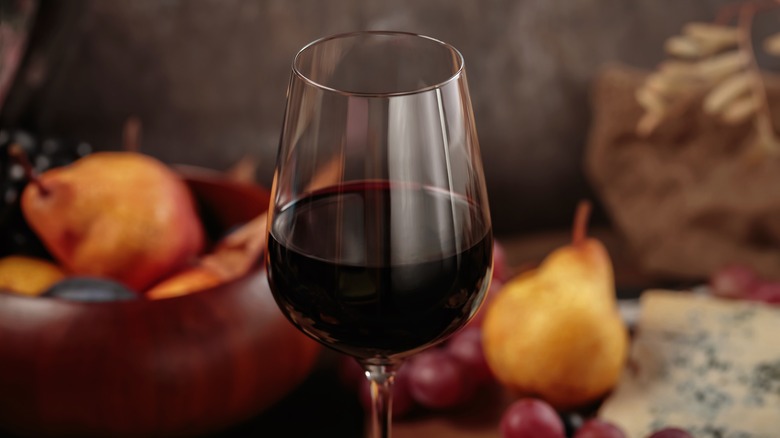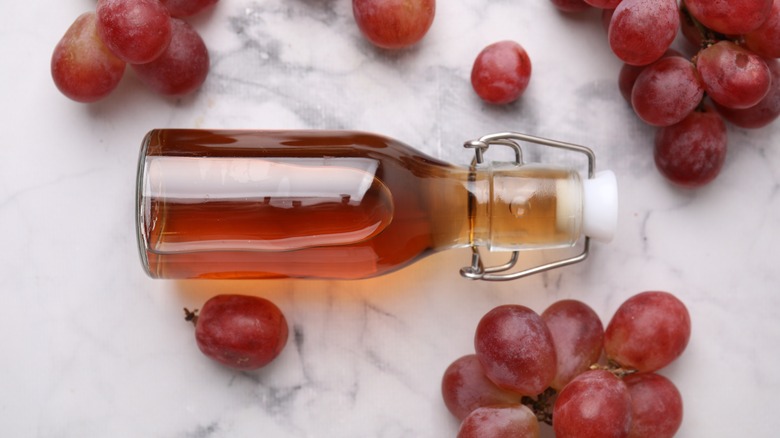Is Wine Still Good If You Left It Out Overnight?
Hands up if you've been here before: You've cracked open some wine to have with your dinner. It's great, but after three glasses you start to feel that food coma coming on. Fast-forward to the next morning, and you're kicking yourself for not corking that delicious wine to enjoy again. You might take a whiff of it, before eventually deciding not to risk it and throwing it out, but don't! Because — and shout this from the rooftops – wine is still good if you leave it out overnight.
Obviously, it's a little more complicated than that, and the rate of deterioration will vary from wine to wine, but a night outside of the fridge shouldn't be the end of your bottle. The two biggest factors affecting that rate are oxidation and temperature. The former is especially important in the short term: A little exposure to oxygen is good for your wine. It'll soften the tannins, making for a more "drinkable" wine. It'll also open it up, allowing for more depth and complexity to develop. But too much oxidation can break down wine's chemical structure, dulling those aromas and leading to bitter (or even vinegary) wine. So recorking the bottle is still a good call to extend the lifespan of your wine.
Temperature is a little more forgiving. Wine likes to be kept somewhere between 45 and 55 degrees Fahrenheit, but a night outside the fridge isn't game over. If you leave it out and it stays in the bottle, you're good to go. If it spends the night on the counter in a glass, though, it's best to chuck it.
You can do more than drink wine
If you've left your wine out for a couple of days and it's admittedly past its best, don't throw it away just yet. There's plenty more you can do with wine than drink it. Red wine will give you a little more breathing room than white, here – red wine lasts longer unopened, and the same is true once that cork is popped (five days, opposed to three, at least when stored properly). Both are great for cooking for a few days after opening, though. You can use red wine to bring depth and flavor to those darker, heartier dishes, like braised short ribs, a classic ragu, or boeuf bourguignon. In the case of white wine, it's great to add some acidity, tang, and complexity to those lighter dishes, going especially well with fish and summer vegetables.
You could also embrace the decomposition of your wine and use it to make a delicious vinegar. This works with both white and red wines, and it's surprisingly easy. You'll need to get your hands on a mother (much like when you're making sourdough), but once you do, you'll be on your way to a delicious and thrifty zero-waste vinegar in no time.


